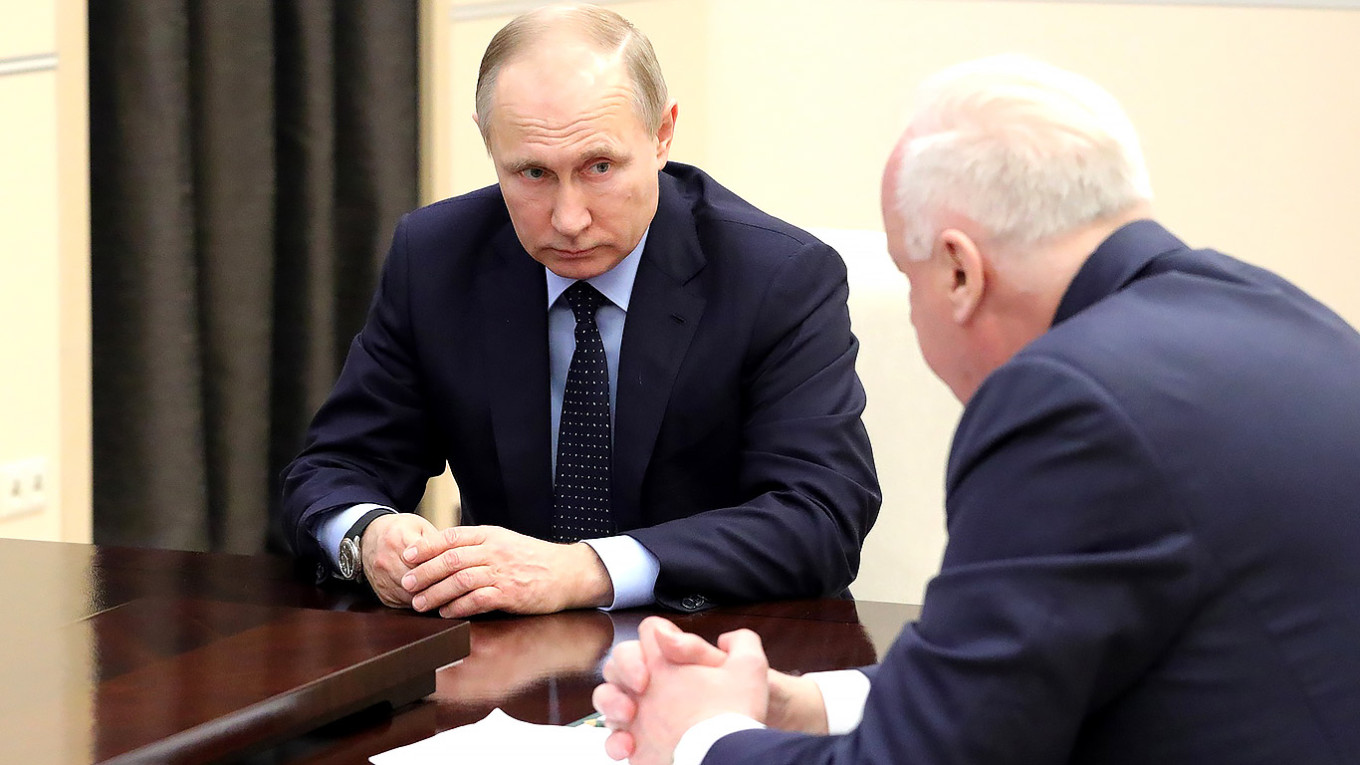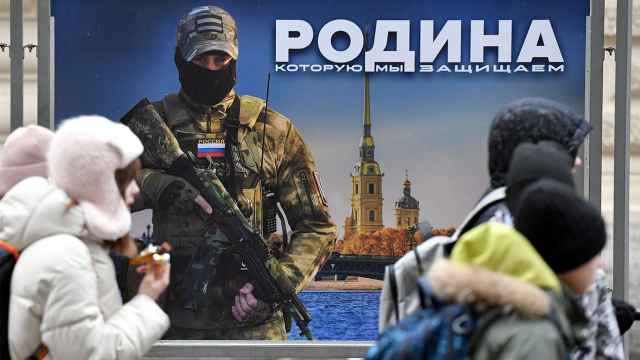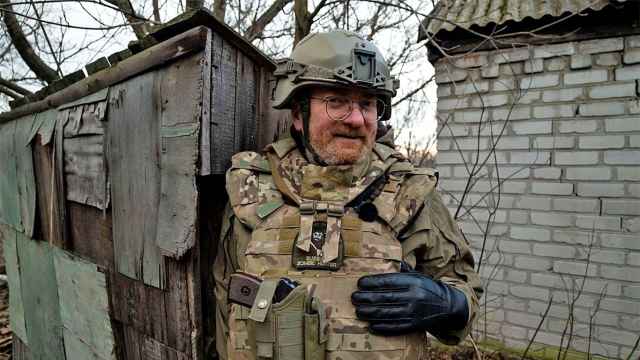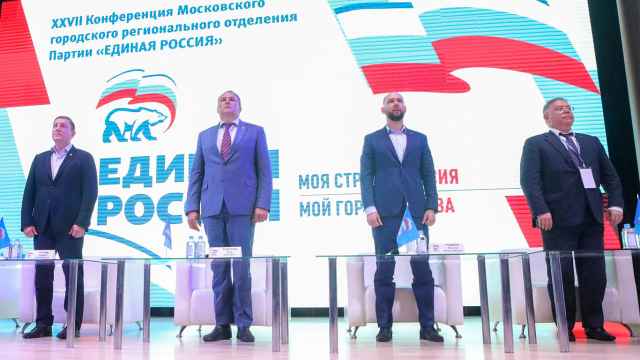In September, the State Duma voted to allow Russian President Vladimir Putin to keep the chairman of the Investigative Committee in office past the age of 70. Alexander Bastrykin, the incumbent since 2011, is already 71.
Until recently, hitting that age would have disqualified Bastrykin from continued service. The retirement age for Investigative Committee officials — up to and including its head — had previously been set at 65, with the possibility of a five-year extension. Now, age is no impediment for Bastrykin, a longtime close associate of Putin, who himself turned 72 this month.
Putin was elected president at the relatively young age of 47, and those he appointed to key positions upon first entering the Kremlin were of a similar age. At the time, officials in Russia had to retire at 65, without exception, and it did not occur to anyone that the country’s relatively young leadership might still be around at that age. In the early 2000s, Putin repeatedly assured Russians that he did not intend to rule beyond 65 or to make it possible to govern past that point.
Yet as Putin served term after term, the deadline neared, forcing him into action. Letting Bastrykin remain at the helm of the Investigative Committee is only the latest example of Putin changing the rules to protect his allies’ jobs.
Officially, the Kremlin’s personnel policy promises Russia’s best and brightest young people a path to the top. In reality, however, those opportunities largely stop at the regional level, or in the best case at a second-tier federal post.
Putin has taken to calling veterans of the war in Ukraine “the new elite,” but even his foot soldiers cannot displace Russia’s true elite: those who have aged in office alongside the president.
In his old age, Putin has come to derive comfort from seeing familiar faces in the same positions. Keen to maintain the status quo, he has stopped at nothing to keep his team intact, giving rise to a gerontocracy.
The first rule changes came in 2010 and 2012, when veteran top judges Valery Zorkin and Vyacheslav Lebedev were permitted by then-President Dmitry Medvedev and Putin, respectively, to serve beyond 70. Medvedev made that exception for Zorkin even as he lowered the retirement age for civilian officials to 60, with the option of a five-year extension if employer and employee agreed.
Lowering the age limit made political sense for Medvedev. Purportedly, the self-styled modernizer wanted young, progressive people, not old-timers, to implement his innovative policies. Moreover, had Medvedev run for reelection, the emergence of a new administrative elite would have reduced the pressure to retain Putin’s people, who simply would have been phased out through mandatory retirement.
In any event, by the time the deadline arrived for Putin’s allies, Medvedev was no longer president, Putin having returned to the Kremlin in 2012. In 2013, he reversed Medvedev’s change to the retirement age for civilian officials, not because it applied to Putin as president but because it threatened his contemporaries. Sergey Ivanov, Putin’s then-chief of staff, turned 60 in 2013 and would have required a waiver to remain in his role. Foreign Minister Sergey Lavrov, then 63, and Security Council Secretary Nikolai Patrushev, then 62, had already been cleared to serve until the age of 65.
Much of Putin’s team, then, was only two to five years from retirement, prompting Putin to raise the retirement age for officials to 65 with the possibility of a five-year extension. Yet his lieutenants continued to age, leading to further rollbacks.
In 2019, Putin did away with the age limit for rectors of large universities. In 2021, he decreed that the government’s most senior officials could serve beyond 70. At the same time, Putin proposed to the State Duma that he be empowered to decide for how long senior military officials should serve, and lawmakers obliged. Even lower-ranking officials have seen their age limits raised.
It is entirely possible that Putin will eventually scrap age limits altogether. Doing so would eliminate the need for him to personally sign off on every extension: each one an invitation for the public to scrutinize not only Russia’s gerontocracy generally, but also Putin’s age specifically. There is already a precedent: governors and lawmakers are not subject to any such restrictions.
In the 24 years that Putin has been in power, the president and his inner circle have gone from being young advocates of reforms to elderly warmongers. Even the youngest members of Putin’s team are either pushing 60 or already there, such as Sberbank CEO German Gref (60) and VEB state development corporation chairman Igor Shuvalov (57). The president’s potential successors are not exactly young either, from Moscow Mayor Sergei Sobyanin (66) to Prime Minister Mikhail Mishustin (58).
The system has chewed up and spat out young, ambitious sorts such as Andrei Turchak, the 48-year-old former United Russia general secretary who tried too hard to become governor of St. Petersburg and speaker of the Federation Council.
Old-timers like Nikolai Patrushev, the 73-year-old former secretary of the Security Council, are being replaced by officials who are not much younger. Sergei Shoigu, Patrushev’s 69-year-old successor, was himself succeeded at the Defense Ministry by a 65-year-old, Andrei Belousov.
The Russian leadership increasingly recalls the gerontocracy that ran the late Soviet Union. Back then, elderly officials died in office, only to be replaced by other geriatrics, death a kind of forced retirement.
Putin’s subordinates have already started dying on the job. This year, Lebedev, the Supreme Court chief justice whose tenure was extended back in 2012, died at 81. He was succeeded by Irina Podnosova, Putin’s 70-year-old university classmate.
Judging by the Bastrykin case, none of this bothers Putin. On the contrary, he associates longevity of service with stability and so seeks to ensure old-timers can remain in office as long as possible.
The danger is that things could play out as they did in the late Soviet period, with a carousel of senior officials leaving office in a hearse. Those who grew old and tired while waiting for a job at the top will simply not be able to cope with the crises that have accumulated, while younger candidates will not have the necessary experience or ambition — for there is no place for such people in a gerontocracy.
This article was orginally published by the Carnegie Endowment for International Peace.
A Message from The Moscow Times:
Dear readers,
We are facing unprecedented challenges. Russia's Prosecutor General's Office has designated The Moscow Times as an "undesirable" organization, criminalizing our work and putting our staff at risk of prosecution. This follows our earlier unjust labeling as a "foreign agent."
These actions are direct attempts to silence independent journalism in Russia. The authorities claim our work "discredits the decisions of the Russian leadership." We see things differently: we strive to provide accurate, unbiased reporting on Russia.
We, the journalists of The Moscow Times, refuse to be silenced. But to continue our work, we need your help.
Your support, no matter how small, makes a world of difference. If you can, please support us monthly starting from just $2. It's quick to set up, and every contribution makes a significant impact.
By supporting The Moscow Times, you're defending open, independent journalism in the face of repression. Thank you for standing with us.
Remind me later.








